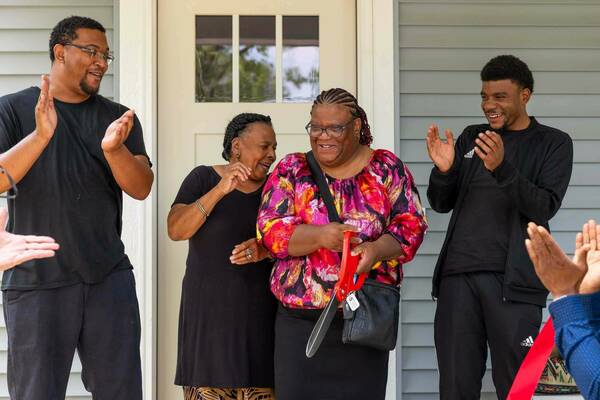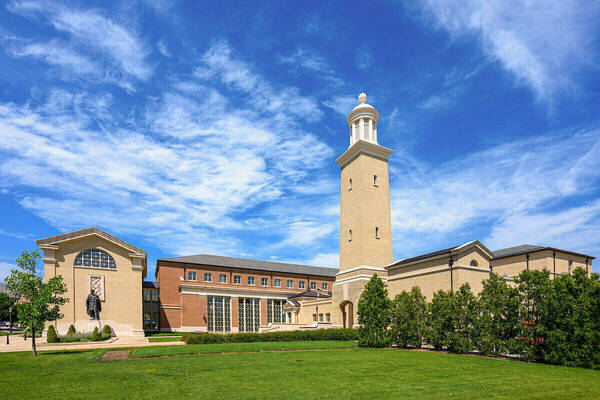Women of African ancestry may be biologically predisposed to early onset or aggressive breast cancers
While the incidence of breast cancer is highest for white women, Black women are more likely to have early-onset or more aggressive subtypes of breast cancer, such as triple-negative breast cancer. Among women under 50, the disparity is even greater: young Black women have double the mortality rate of young white women.
Now research from the University of Notre Dame is shedding light on biological factors that may play a role in this disparity. The study published in iScience found that a population of cells in breast tissues, dubbed PZP cells, send cues that prompt behavioral changes that could promote breast cancer growth.
Funded by the National Cancer Institute at the National Institutes of Health, the study set out to explore what biological differences in breast tissue could be related to early onset or aggressive breast cancers. Most breast cancers are carcinomas, or a type of cancer that develops from epithelial cells. In healthy tissue, epithelial cells form linings in the body and typically have strong adhesive properties and do not move.
The researchers focused on PZP cells as previous studies had shown that these cells are naturally and significantly higher in healthy breast tissues of women of African ancestry than in healthy breast tissues of women of European ancestry. While PZP cell levels are known to be elevated in breast cancer patients in general, their higher numbers in healthy, African ancestry tissues could hold clues to why early-onset or aggressive breast cancers are more likely to occur in Black women.
“The disparity in breast cancer mortality rates, particularly among women of African descent, is multifaceted. While socioeconomic factors and delayed diagnosis may be contributing factors, substantial emerging evidence suggests that biological and genetic differences between racial groups can also play a role,” said Crislyn D'Souza-Schorey, the Morris Pollard Professor of Biological Sciences at Notre Dame and corresponding author of the study.
The study showed how PZP cells produce factors that activate epithelial cells to become invasive, where they detach from their primary site and invade the surrounding tissue.

For example, a particular biological signaling protein known as AKT is often overactive in breast cancers. This study showed that PZP cells can activate the AKT protein in breast epithelial cells, which in part allows them to invade the surrounding environment. PZP cells also secrete and deposit certain proteins outside the cell that guide the movement of breast epithelial cells as they invade.
Overall, the results of the study emphasize multiple mechanisms by which PZP cells may influence the early stages of breast cancer progression and their potential contribution to disease burden.
The researchers also looked at how a targeted breast cancer drug, capivasertib, which inhibits the AKT protein, impacted PZP cells and found it markedly reduced the effects of the PZP cells on breast epithelial cells.
“It’s important to understand the biological and genetic differences within normal tissue as well as tumors among racial groups, as these variations could potentially influence treatment options and survival rates. And consequently, in planning biomarker studies, cancer screenings or clinical trials, inclusivity is important,” said D'Souza-Schorey, also an affiliate of Notre Dame’s Berthiaume Institute for Precision Health and Harper Cancer Research Institute.
D'Souza-Schorey and her lab collaborated with the Indiana University Melvin and Bren Simon Comprehensive Cancer Center’s Susan G. Komen Tissue Bank to access PZP cells and epithelial cells isolated from healthy breast tissues of both African and European ancestry. The cell lines were then grown in a three-dimensional environment, mimicking the way the cells would behave in living tissues and organs.
The research team also worked with the Notre Dame Integrated Imaging Facility for the study.
In addition to D’Souza-Schorey, co-authors include Madison Schmidtmann, Victoria Elliott, James W. Clancy, and Zachary Schafer from Notre Dame and Harikrishna Nakshatri from and IU Simon Comprehensive Cancer Center.
Contact: Brandi Wampler, associate director of media relations, 574-631-2632, brandiwampler@nd.edu
Latest ND NewsWire
- Gen. Martin Dempsey to speak at Notre Dame Forum event on ‘Hope, Global Stability and the Role of the United States’Gen. Martin Dempsey, the retired 18th chairman of the Joint Chiefs of Staff, will join University President Rev. Robert A. Dowd, C.S.C., for a fireside chat at 4 p.m. Friday (Oct. 10), as part of the 2025-26 Notre Dame Forum. The discussion, titled “Hope, Global Stability and the Role of the United States,” is part of the exploration of this year’s Notre Dame Forum theme, “Cultivating Hope.” It will take place in Rooms 215/216 of McKenna Hall and will also be livestreamed. The event is free and open to the public.
- University of Notre Dame joins the Global Coalition of Ukrainian StudiesThe University of Notre Dame has joined the Global Coalition of Ukrainian Studies after signing a memorandum of cooperation, formalized Sept. 24, at the Ukrainian Institute of America in New York City. Notre Dame joined four other American institutions that were also publicly welcomed to the coalition at this event: Arizona State University, Columbia University, Manor College and the Shevchenko Scientific Society.
- One year later, Inauguration Build a ‘dream come true’ for Habitat familiesOne year later, work on Inauguration Build 2024 is complete, offering shelter and so much more to five local families.
- Alumni Association and YoungND honor 2025 Domer DozenThe Notre Dame Alumni Association announced its 2025 Domer Dozen cohort, honoring 12 graduates ages 32 and younger for excellence in their contributions in learning, service, faith and work — the core pillars of the association’s mission.
- Faculty receive prestigious early career awards from National Science FoundationDuring the 2024-25 academic year, four researchers in the University of Notre Dame’s Colleges of Engineering and Science received early-career awards from the National Science Foundation.
- Notre Dame School of Architecture poised for global leadership through historic investmentThe $150 million gift represents an unprecedented commitment in the 160-year history of American architectural education. In recognition of this landmark gift, the school will be renamed the Matthew and Joyce Walsh School of Architecture at Notre Dame.













